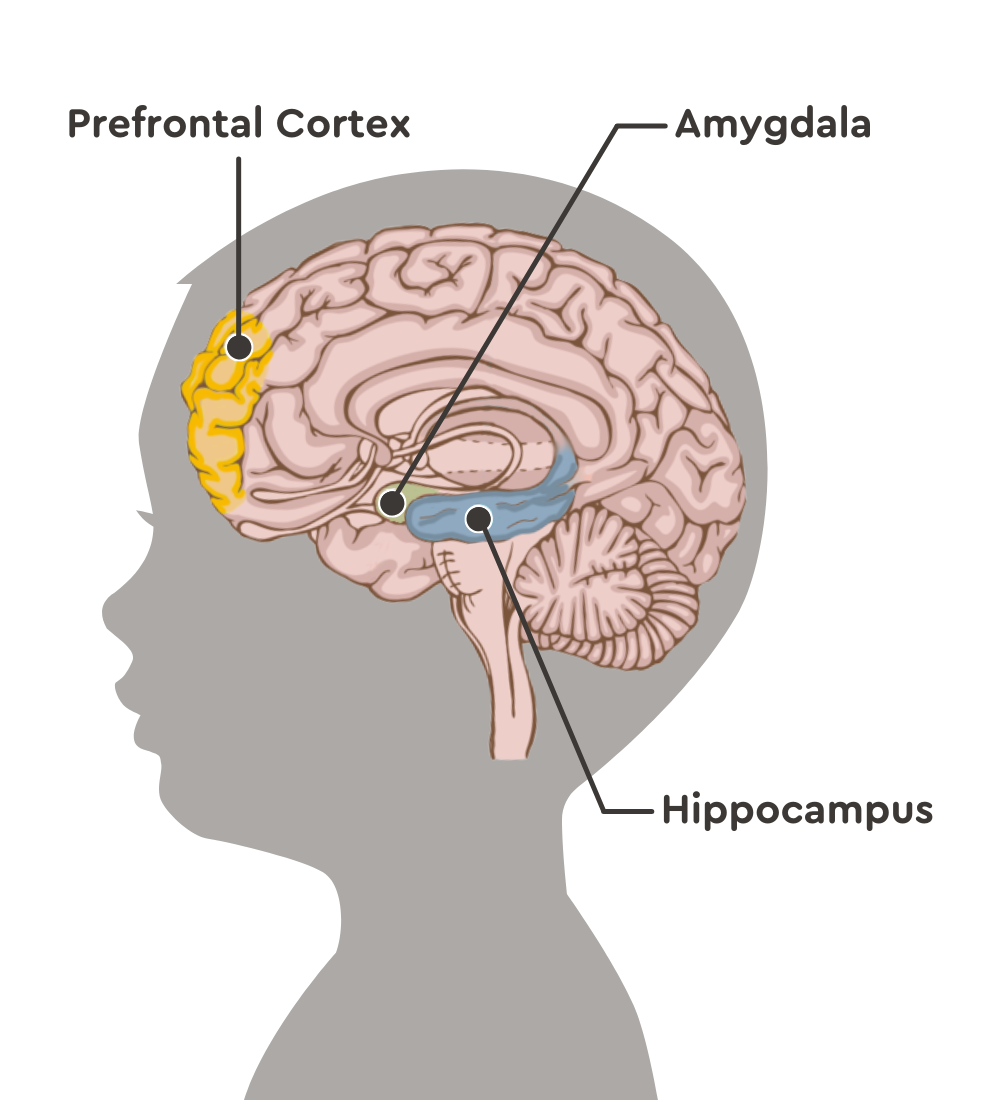At Pause with Panda, we like to formally think about mindfulness as “paying attention to the here and now with a sense of kindness and curiosity and then choosing a response”. But to help make this a bit easier for children (and even adults) to understand, we like to talk about mindfulness as simply taking a "Pause".
✨A “Pause” is when we take a moment to pay attention to our bodies, thoughts and feelings.✨
By taking Pauses, children learn to “practice” mindfulness which can help their brains develop skills like focusing, showing compassion, and self-regulation.
How Mindfulness Develops Our Brains
Mindfulness can help develop children’s brains by activating and regulating three key parts:
1. Amygdala
The amygdala is activated when detecting and reacting to emotions including difficult or strong emotions such as fear. Following sessions of mindfulness training, this part of the brain may be less activated.
2. Hippocampus
The hippocampus is critical to learning and memory and helps regulate the amygdala. The hippocampus is more activated, and produces more gray matter density following mindfulness training.
3. Prefrontal Cortex
The prefrontal cortex is most associated with maturity, including regulating emotions and behaviors and making wise decisions. This part of the brain is more activated and developed following mindfulness training.



Benefits of Mindfulness
Research finds that youth you practice mindfulness can develop:
-

Reduced Stress & Anxiety
Mindfulness reduces feelings of stress and improves anxiety and distress when placed in a stressful social situation.
-

Emotional Regulation
Mindfulness creates changes in the brain that correspond to less reactivity, and better ability to engage in tasks even when emotions are activated.
-

Improved Attention
Numerous studies show improved attention, including better performance on objective tasks that require an extensive concentration span.
-

Greater Compassion
People randomly assigned to mindfulness training are more likely to help someone in need and have greater self-compassion.






